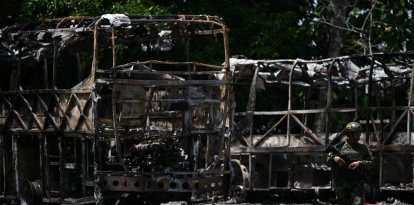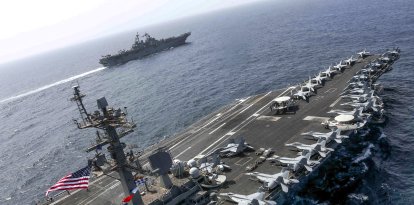China strengthens its influence in Latin America after signing new agreements with countries governed by leftists
China's generous development investments help to conceal its ever-increasing military expansion in the region.

(Cordon Press)
China is currently the largest trading partner of Brazil, Chile, Peru, Uruguay, and Argentina and has free trade agreements with Chile, Costa Rica and Peru. Just a few weeks ago Honduras cut its ties with Taiwan and established diplomatic relations with China. This step involved the express acceptance of the "one China policy," which recognizes Beijing's full sovereignty over the "rebel island" of Taiwan. In 2021, Nicaragua ended ties with Taipei and opened an embassy in Beijing. In 2018, the Dominican Republic did the same. Today, in Latin America, Taiwan is only supported by Guatemala, Belize, Haiti, St. Kitts and Nevis, St. Lucia, St. Vincent and the Grenadines. All of these countries have very little weight in the international sphere.
Last week Brazil, now governed by leftist Lula da Silva, reached an agreement with China to conduct all its trade transactions using their own national currencies. This measure has consequences for the world economy, considering that trade between the two countries amounted to more than $150 billion in 2022 and all these foreign trade and other mutual financing operations will subsequently be carried out by converting Brazilian reais into Chinese yuan and vice versa. China's presence is also very important in Argentina, where it currently has 52 mining and hydrocarbon projects. While Alberto Fernández never tires of talking about the friendship between the two countries, Argentina's trade deficit with China continues to grow, to the point that the Casa Rosada has already opened a debate on the possibility of issuing a sovereign Argentine bond in yuan to finance the balance of trade deficit.
Research by the think tank Inter-American Dialogue concluded that several Chinese banks, among them the China Development Bank and the Eximbank, have lent more than $140 billion to Latin American governments since 2005, more than the amount provided by World Bank and the Inter-American Development Bank in the same period of time. This Chinese-style "Marshall Plan" policy is the key used by the communist regime in Beijing to open the doors to Latin America and snatch away the United State's control of the region.
At the military level
China's share of total trade in Latin America and the Caribbean could reach 24% of the regional total by 2035, a very significant figure considering that this percentage was less than 2% in 2000. More dangerous than this commercial advance, however, is the military presence of the Chinese regime on the continent. China and its Russian ally, which has had close military relations with Cuba, Venezuela and Nicaragua for decades. Beijing often uses its generous economic investments for the development of the region for military purposes.
In recent decades, the People's Liberation Army (PLA) has spread out throughout Latin America. China has established a high-level defense forum with the Community of Latin American and Caribbean States (the leftist Celac) to train the Armed Forces of these countries. It also sends its own soldiers to these countries for jungle combat training. Xi Jinping's government sells weapons, aircraft and tanks to Venezuela, Argentina and Bolivia, among other countries. The future plans of China and CELAC are to "continue deepening their relations," as stated in the latest document published by both parties.
This same strategy of economic investment and then military expansion is what China is using to break into Africa and Asia.
What is the United States doing while all this is going on in its 'backyard' and in places as close to its borders as Cuba? President Joe Biden seems to be looking the other way or is still asleep, as former President Trump would say in one of his most popular jokes about his one-time opponent. Last June, the Democrat organized the Summit of the Americas in Los Angeles to counter Chinese activities. Apart from getting bogged down in sterile polemics with the president in charge of Venezuela, Juan Guaidó, this summit has so far served no purpose. Or, at least, for anything concrete and tangible.
























